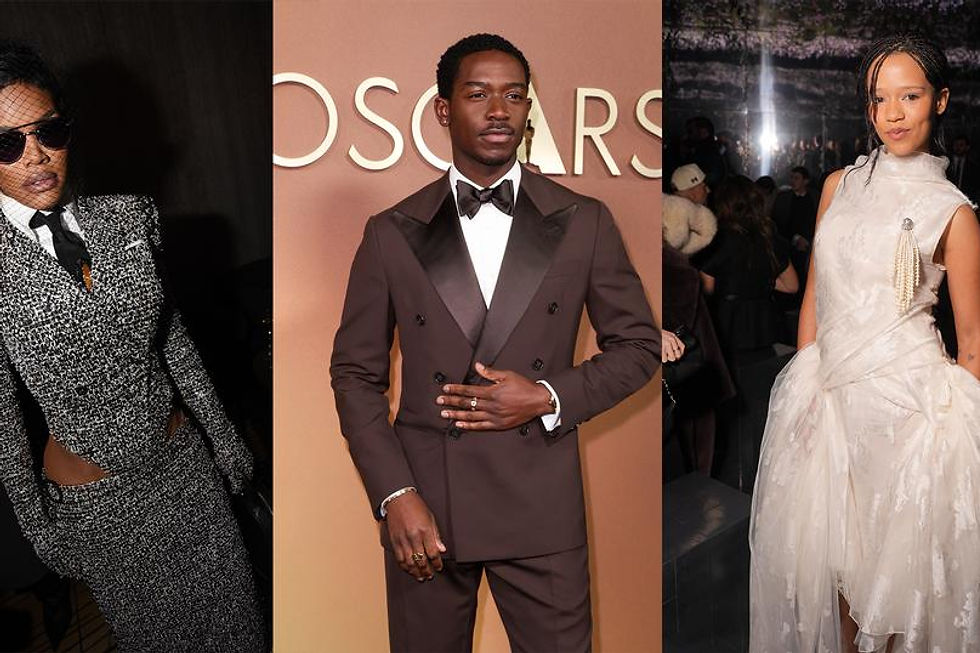Behind the Glitz: The Dark Dealings of Hollywood's Underworld
- israelantonionotic
- Mar 21, 2025
- 3 min read
Inside the Dark Underbelly: How Celebrity Culture and Organized Crime Collide in Hollywood's Shadowy Corners

The recent resurfacing of a video featuring Eugene “Big U” Henley Jr., a prominent figure in the Rollin’ 60s Crips and music executive, has shed light on the often murky intersection of celebrity culture and organized crime. In the video, Big U openly discusses the practice of compelling celebrities to “check in” with him before they are permitted to engage in projects within the city, particularly on film sets. This revelation is not just about Hollywood glamour; it unveils a darker side of the entertainment industry where allegiance to street culture intertwines with mainstream success.
In the clip, set against the backdrop of a movie production in a Los Angeles neighborhood, Big U confidently presents himself as a gatekeeper to the hood. He affirms his authority by stating, “Anytime you want to do movies in the hood, just get checking in.” His remarks suggest an unspoken code within certain circles of the entertainment industry that is not merely administrative but deeply rooted in legacy and power dynamics. Big U’s comments highlight a precarious balance between artistic expression and the need for safety or acceptance among figures associated with street culture. His casual demeanor, combined with the serious implications of his message, raises eyebrows about the true cost of obtaining a foothold in the film industry.

As the footage unfolds, Big U emphasizes that if those in the entertainment space neglect to check in, they risk repercussions — a scenario that seems to flippantly trivialize serious consequences. The video portrays an exchange with another man, GB, who jokingly suggests that they would “check your a-s out” if producers fail to follow protocol. This banter, while intended to be humorous, casts a shadow over the legitimate processes filmmakers typically navigate when working in urban settings. It reveals a not-so-hidden network of intimidation and control that can potentially compromise artistic freedom and safety.
Adding another layer of complexity to Big U's narrative, he recently turned himself in after being implicated in a federal complaint. The charges against him are stark: running a criminal enterprise involving racketeering, extortion, human trafficking, fraud, and even the 2021 murder of a budding rap artist. The juxtaposition of his influence in showbiz with his alleged criminal behavior illustrates a disconcerting reality faced by many in the industry. The FBI, through Assistant Director in Charge Akil Davis, underscored the need for accountability, stating that individuals like Big U had exploited their influence to engage in violent acts and fraudulent schemes, often while masquerading as rehabilitated figures.

The implications of Big U's actions ripple through the entertainment industry, raising profound questions about the relationships between artists, producers, and the gangster figures who claim influence over them. The film industry in Los Angeles — a dreamland for many — can sometimes transform into a battleground where giants, both legal and illegal, vie for supremacy. As artists and executives search for authenticity in their work, it becomes crucial to recognize who stands behind the scenes, shaping careers and dictating terms through a mixture of charm and fear.
Celebrities navigating this landscape must be acutely aware of their surroundings, as success in this arena hinges not merely on talent but often on their ability to maneuver through various sociopolitical terrains. The failure to heed the unspoken rules can lead to more than just a damaged reputation; it can put lives and careers at risk. The revelation that figures like Big U may wield power over creative projects sends chills through the very core of what it means to pursue art in a society that sometimes fails to differentiate between creativity and criminality.

In conclusion, the resurfacing of Big U's video serves not only as a reminder of the chaotic dynamics within the entertainment industry but also as a cautionary tale for aspiring artists. It highlights a fundamental truth: the intersections of celebrity, street life, and crime present profound challenges and dangers. Ultimately, navigating these treacherous waters demands not only creativity but also a keen sense of awareness and strategic acumen. As the lines between legitimate business and underworld connections blur, the stakes grow higher, compelling entertainers to balance their craft with an understanding of the grittier side of fame.




Comments